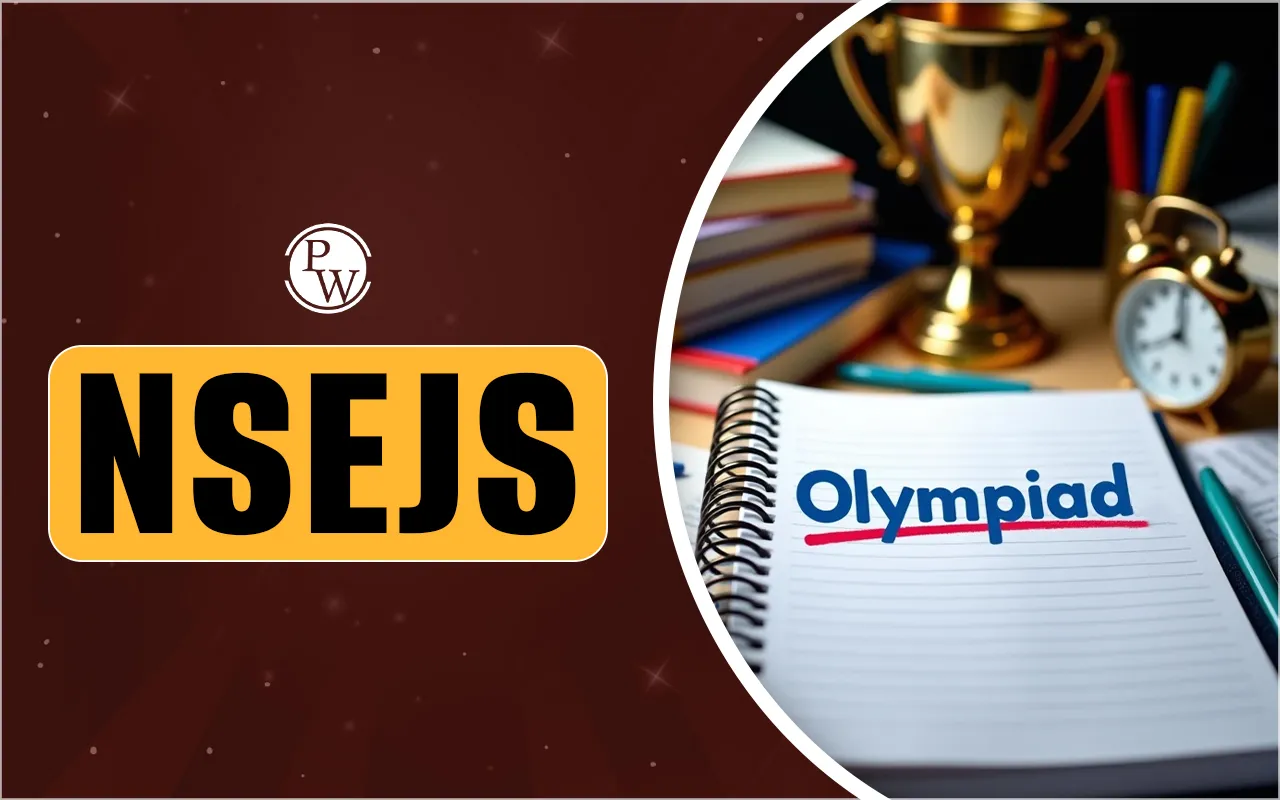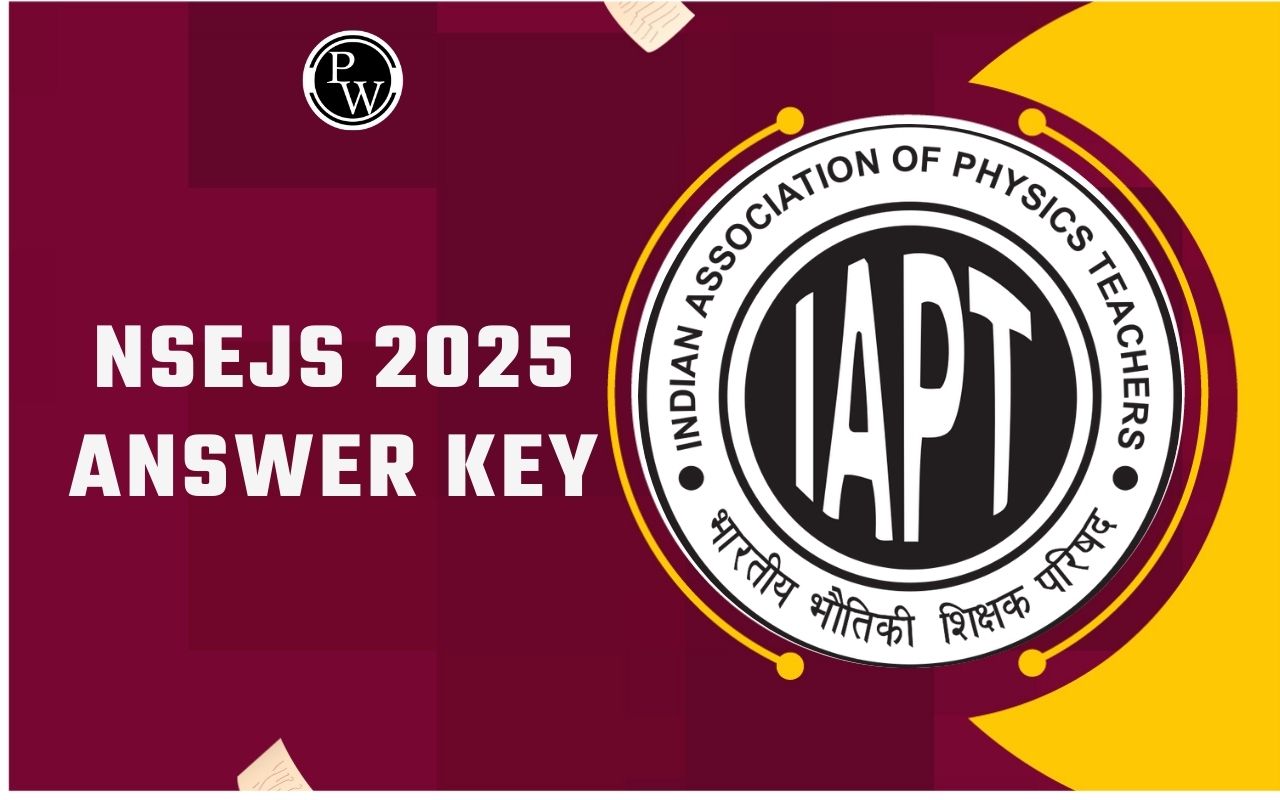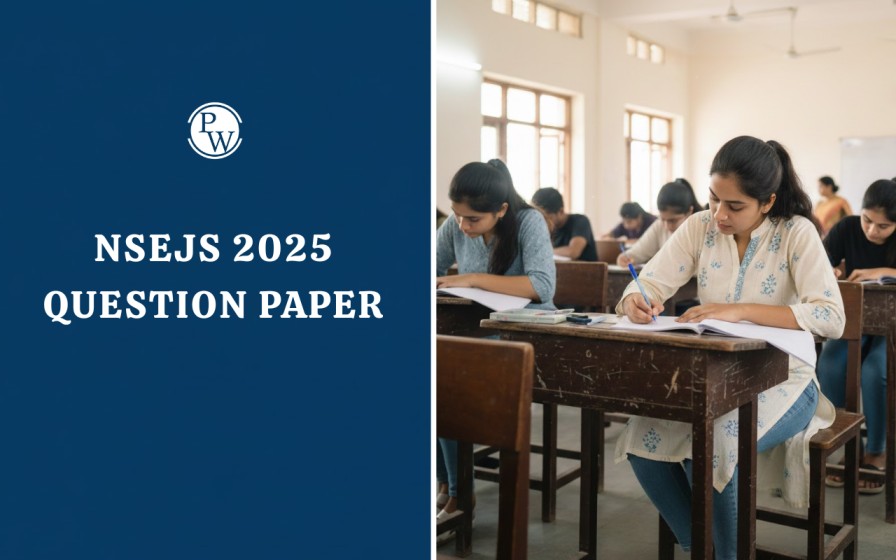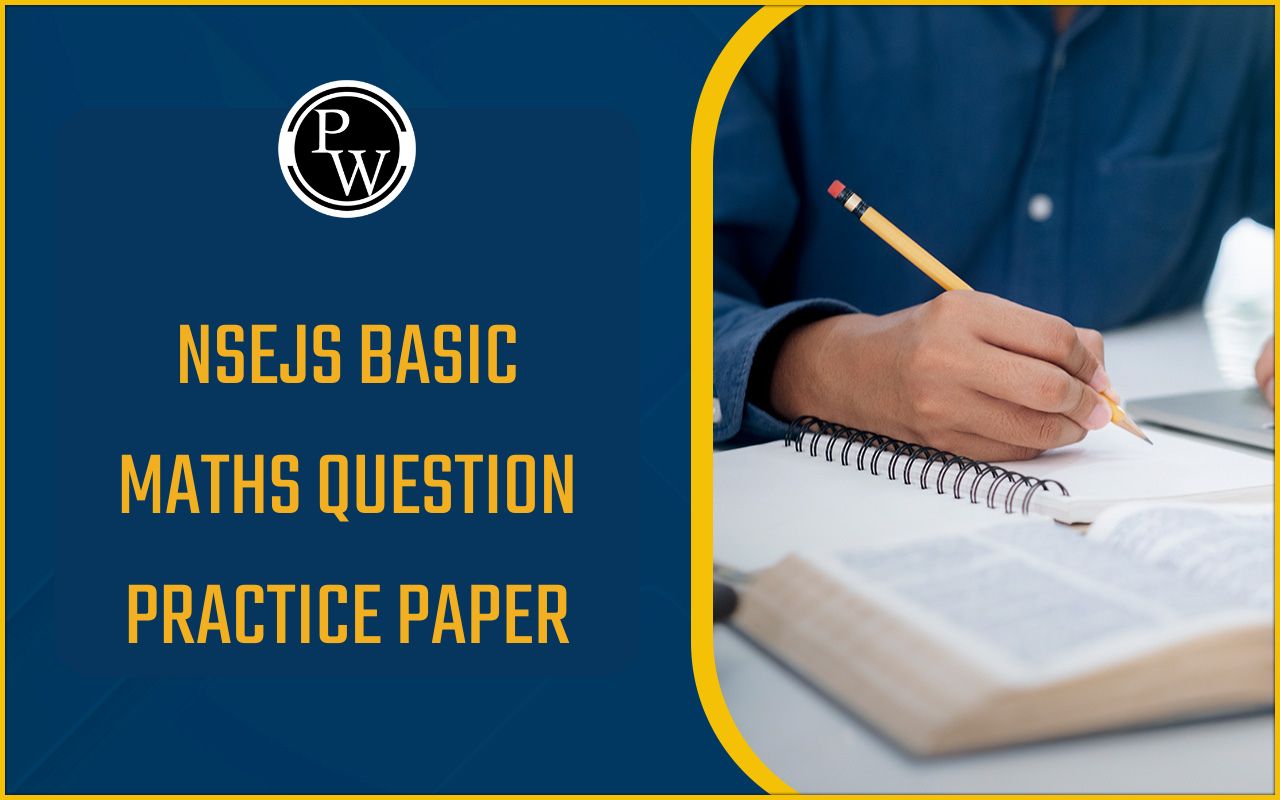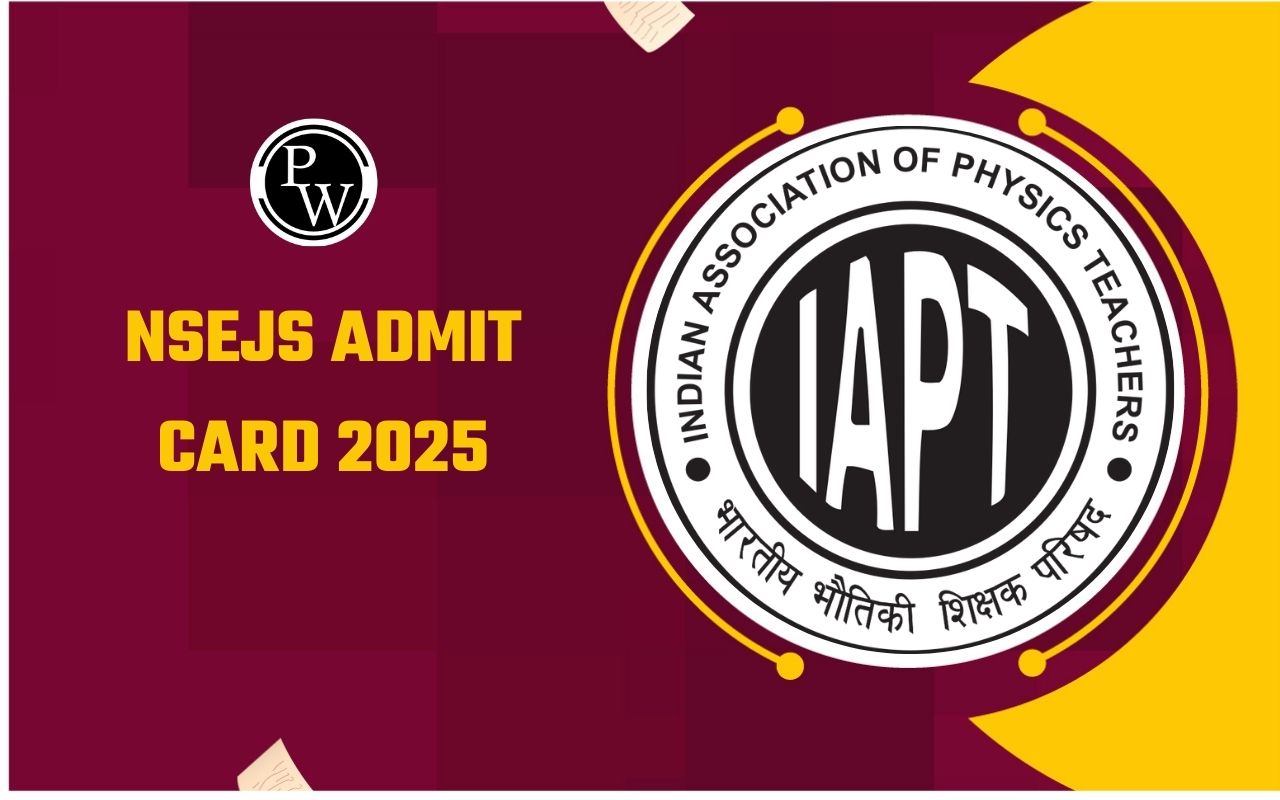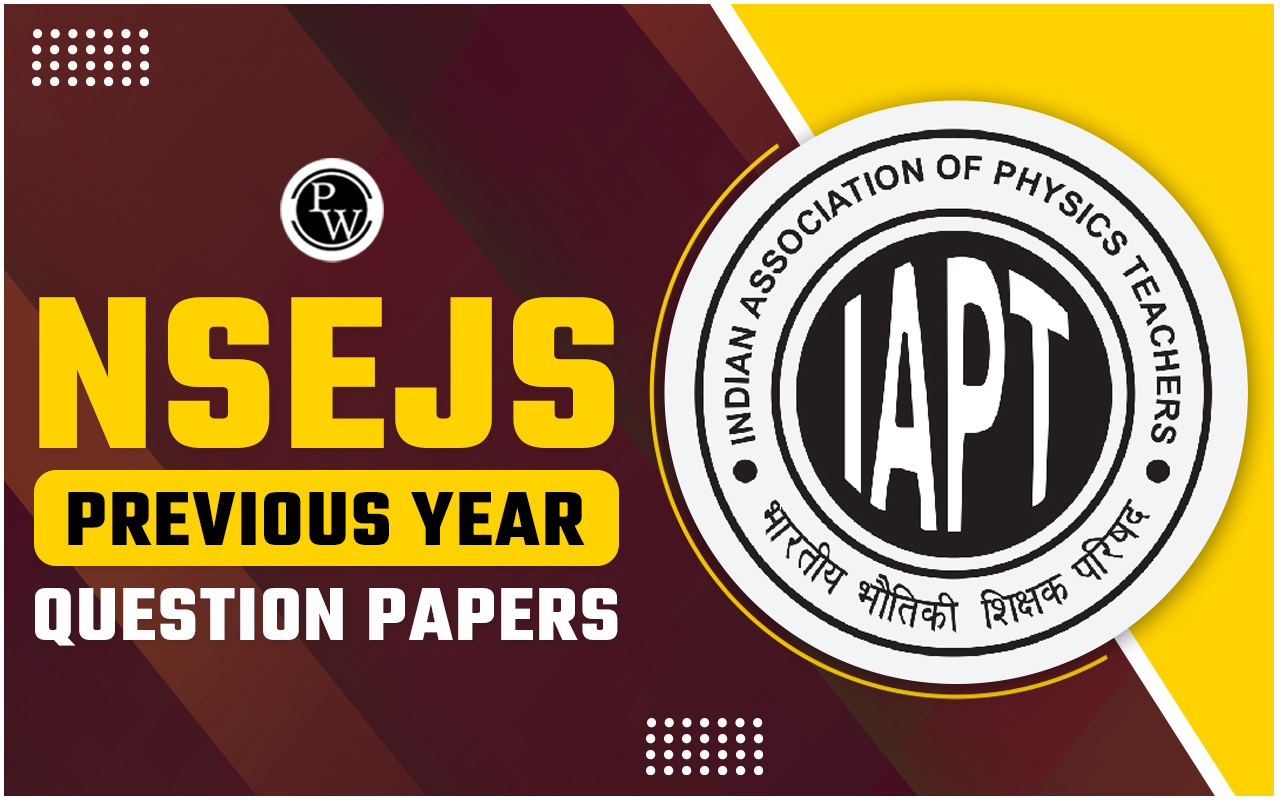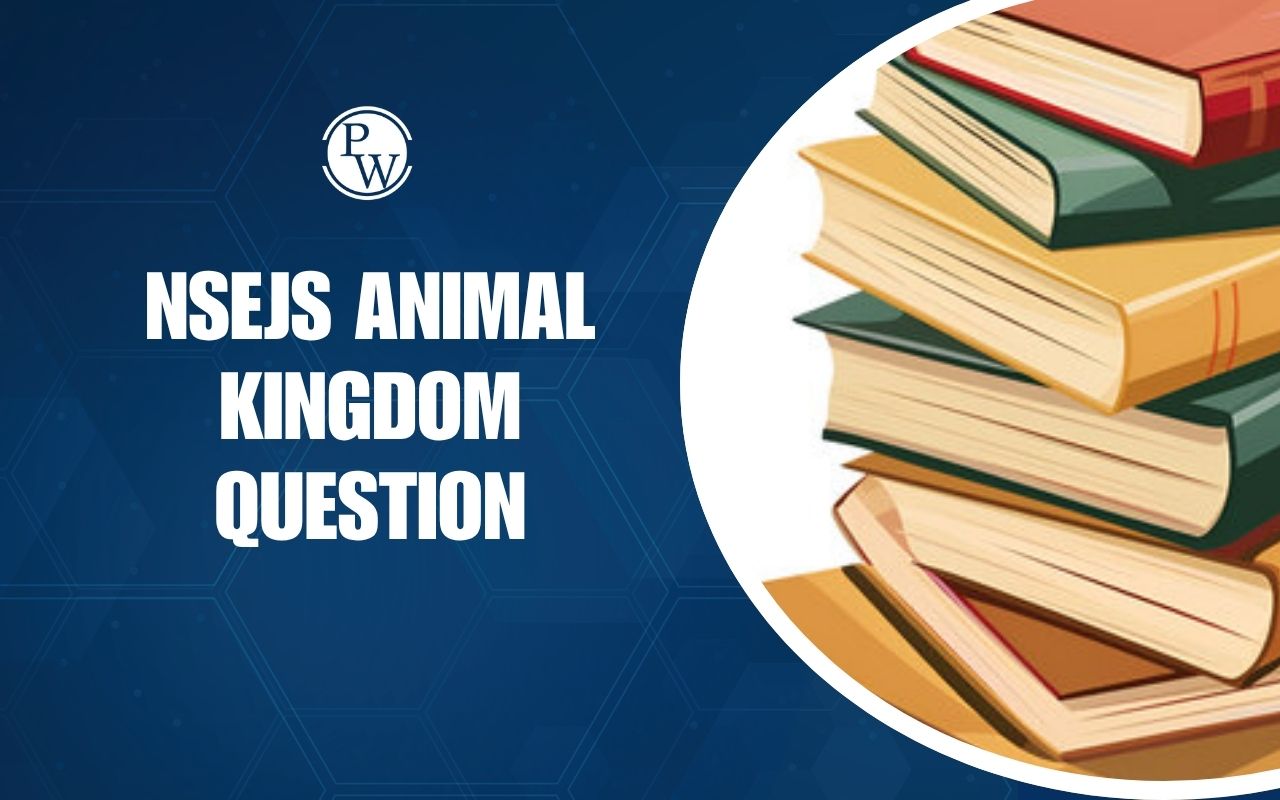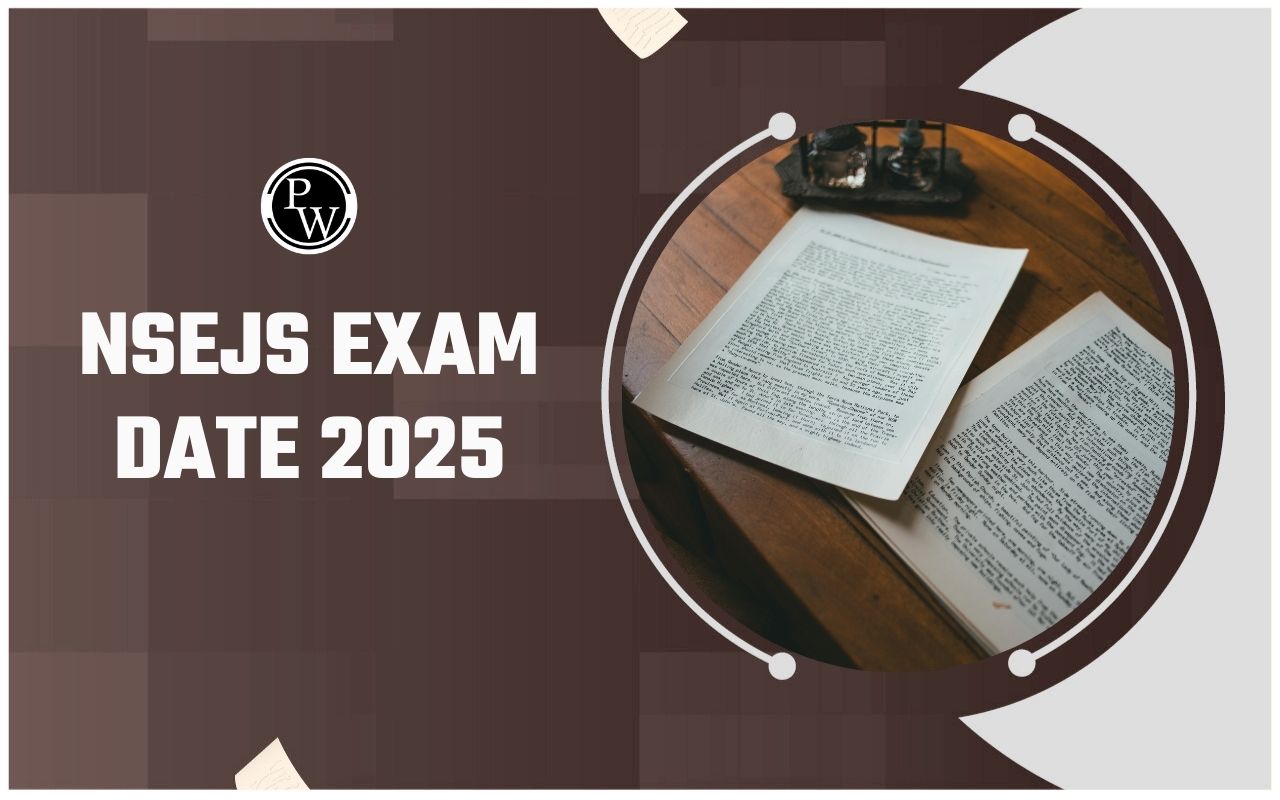
NSEJS Training Camp 2025: Preparing for NSEJS (National Standard Examination in Junior Science) requires the right guidance, structured learning, and regular practice. To help students, Physics Wallah is launching a dedicated NSEJS Training Camp designed to provide focused lectures, regular tests, and expert mentorship.
What is NSEJS Training Camp 2025?
The NSEJS Training Camp 2025 is a high-level preparation program. It is for students who are among the top performers in the National Standard Examination in Junior Science (NSEJS) Olympiad Exam. The camp includes sessions, mock tests, and strategy classes to help students perform better in the IOQM 2025 exam.
This NSEJS Training camp is your last chance to revise and strengthen your preparation before the actual exam. It focuses on tough problems, smart methods, and confidence-building.
NSEJS Training Camp Launch Details
-
NSEJS Training Camp Launching Date: September 9, 2025
-
Start Date: September 10, 2025
-
Mode: Live on YouTube Channel https://www.youtube.com/@PW-OlympiadWallah
-
Timings: 8:00 PM – 10:00 PM
-
Batch Formation: A special batch will be created exclusively for NSEJS students- with daily DPPs and Tests.
-
Lecture Updates: Each lecture will be updated in the batch by the next day.
NSEJS Exam Pattern 2025
The NSEJS Exam typically consists of multiple-choice questions. Here is a detailed look at the National Standard Examination In Junior Scientific Exam Pattern 2025:
-
Maximum Questions- There will be a total of 60 questions in the test.
-
Maximum Marks- The question paper will be a total of 216 marks.
-
Type of Questions- There will only be multiple-choice or objective questions.
-
Duration- The exam will last 2 hours.
-
Medium- The question paper will only be offered in English, Hindi and Gujarati medium only (Option during registration).
Check: How to Prepare for NSEJS?
NSEJS Daily Test Structure
To strengthen NSEJS exam preparation, daily tests will be conducted:
-
Availability: Next day from 8:00 AM – 8:00 PM (in the batch)
-
NSEJS Test Pattern: 20 questions per set
-
16 SCEQ (Single Correct Answer Questions)
-
4 MCEQ (Multiple Correct Answer Questions)
This structured testing ensures students practice consistently and evaluate their progress regularly.
NSEJS Syllabus 2025
The detailed overview of the NSEJS Syllabus 2025 is provided below-
Matter - Nature and Behaviour
-
States of matter: solid, liquid, gas; properties and changes of state (melting, boiling, evaporation, condensation, sublimation).
-
Elements, compounds, mixtures; separation techniques; solutions (types, concentration).
-
Atoms and molecules, laws of chemical combination, atomic masses, and mole concept.
-
Structure of an atom: protons, neutrons, electrons; valency, isotopes, isobars.
Chemical Substances - Nature and Behaviour
-
Chemical reactions: equations, balancing, reaction types.
-
Acids, bases, salts: properties, pH, common compounds (NaOH, bleaching powder, POP, etc.).
-
Metals & non-metals: properties, reactivity, metallurgical processes, corrosion.
-
Carbon compounds: covalent bonding, homologous series, functional groups, reactions, ethanol, ethanoic acid, soaps & detergents.
-
Periodic classification of elements: Dobereiner, Newlands, Mendeleev, Modern Table, trends.
Organization in the Living World
-
Cell structure and organelles: prokaryotic and eukaryotic cells.
-
Plant and animal tissues, organs, and systems.
-
Diversity: classification of plants (up to angiosperms) and animals (non-chordates to classes of chordates).
-
Health & diseases: infectious/non-infectious diseases, microbes, prevention, polio program.
Life Processes
-
Nutrition, respiration, transport, and excretion in plants and animals.
-
Control & coordination: plant hormones, nervous system, reflexes, animal hormones.
-
Reproduction (asexual, sexual), reproductive health, HIV/AIDS awareness.
-
Heredity & evolution: Mendel’s laws, sex determination, basic evolution concepts.
Motion, Force and Work
-
Motion: displacement, velocity, acceleration, graphs, equations of motion, circular motion.
-
Force and Newton’s laws; momentum, conservation of momentum.
-
Gravitation: universal law, acceleration due to gravity, free fall, mass & weight.
-
Floatation: Archimedes' principle, buoyancy, relative density.
Effects of Current
-
Current and voltage, Ohm’s law, resistance factors.
-
Resistors in series/parallel, applications.
-
Heating effect of current, electric power.
-
Magnetic effect of current: magnetic field, solenoid, motor, generator, EMI, AC vs DC, domestic circuits.
Light
-
Reflection and mirrors; mirror formula, magnification.
-
Refraction, lenses, lens formula, power, magnification.
-
Human eye and defects of vision.
-
Prism, dispersion, scattering, and applications.
Our Environment
-
Air, water, soil resources and pollution.
-
Ozone layer depletion.
-
Biogeochemical cycles: water, oxygen, carbon, nitrogen.
Natural Resources
-
Sources of energy: fossil fuels, solar, wind, water, tidal, nuclear, biogas; renewable vs non-renewable.
-
Ecosystem and environmental issues: pollution, waste, biodegradable vs non-biodegradable.
-
Natural resource management: forests, wildlife, coal, petroleum, dams, water harvesting, and sustainability.
Food Production
-
Plant/animal breeding, fertilizers and manures, pest protection, and organic farming.
Also Read: NSEJS Previous Year Question Paper
Additional Features of NSEJS Training Camp
-
Weekly Strategy Sessions: 5 extra sessions are planned (subject to faculty availability). These will help students improve time management, problem-solving approach, and exam strategies.
-
Batch Pricing: Final pricing will be announced soon.
Olympiad Wallah Faculty Team for NSEJS
Our PW NSEJS Training camp is powered by Experienced Mentors:
Physics Faculty
-
Varun Chauhan Sir
-
Bajrang Lal Agrawal Sir
Chemistry Faculty
-
Shalendra Gupta Sir
-
Ashutosh Gautam Sir
-
Vivek Kumar Sir
Biology Faculty
-
Rajeet Chandan Sir
-
Amit Kumar Sir
With such a strong lineup of experienced teachers, students will receive quality guidance in every subject.
Why Join the NSEJS Training Camp?
This NSEJS training camp is not just about covering the NSEJS Syllabus 2025 but also about building confidence, accuracy, and exam temperament.
-
Live interactive classes with subject experts
-
Recorded lectures for revision
-
Regular daily tests for practice
-
Weekly strategy sessions to boost preparation
-
Dedicated NSEJS batch for focused learning
-
Faculty support and doubt-solving opportunities
NSEJS Training Camp 2025 FAQs
What is the launch date of the NSEJS Training Camp 2025?
Where can I access the NSEJS Training Camp 2025?
When will the NSEJS Test be available in the Training Camp?
What are the special features of the NSEJS Training Camp 2025?

